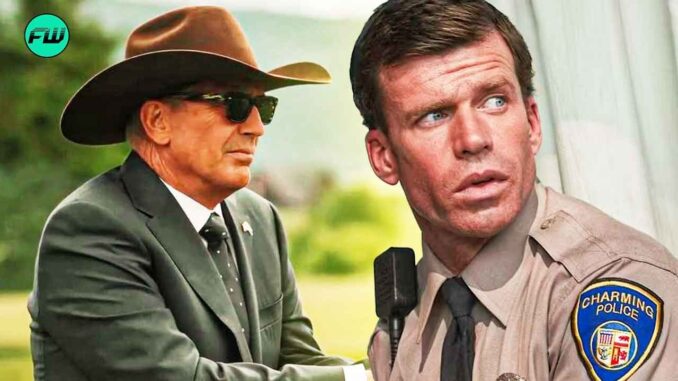
Taylor Sheridan’s Yellowstone, despite its faults, does not fail in one area that remains the most crucial in today’s society.
Despite Taylor Sheridan’s many faults, his creation of the Paramount flagship series, Yellowstone, has been one of the exceptions during this era of creative block in Hollywood. With a never-ending, expansive, beautiful, and mostly forgotten landscape of Montana serving as the backdrop, a story builds in the cradle of the valley as opposing factions vie for power and control through violence.
![Kevin Costner and Kelsey Asbille in Yellowstone Season 2 [Credit Paramount Network]](https://fwmedia.fandomwire.com/wp-content/uploads/2024/06/09134649/Kevin-Costner-and-Kelsey-Asbille-in-Yellowstone-Season-2-Credit-Paramount-Network.jpg)
However, once the audience cuts through the superficial fog of cowboys, ranches, the Reservation, and politics, a view emerges tainted with the centuries-long history of oppression of the Native Americans at the hands of white foreigners. With the Broken Rock Indian Reservation serving as the mouthpiece and physical manifestation of the Native American community, Taylor Sheridan crafts a hauntingly tragic tale that cuts through the politeness and exposes the subversion of the community.
Yellowstone Brings a Crucial Societal Truth to Light
Taylor Sheridan has always been a wizard with words. Carefully strung together from beginning to end, a Sheridan script never wastes a comma on the inessential, instead finding a purpose for every monologue and dramatic silence. As such, Yellowstone becomes a crucial addition to his growing list of achievements by giving voice to a cause that would otherwise be lost among the noise.
![Yellowstone [Credit: Paramount Network]](https://fwmedia.fandomwire.com/wp-content/uploads/2024/06/09134617/Yellowstone-Horseback-Riders-Credit-Paramount-Network-3-scaled.jpg)
After Wind River and Sicario brought extreme edges of society to the forefront of current issues, Yellowstone became the creative successor for stories that find more exposure through fiction depicted on television than anywhere else in the open. By exploring the ever-present prejudice against the Native minority, Sheridan highlights a subject that needs implicit attention of the people, now more than ever.
However, change that comes with great socio-political implications are easier said than done. Despite the urgency of the cause, a writer for the screen can only do so much with the tools available to him. Spreading awareness then becomes the next best thing in Taylor Sheridan’s toolbox, and Yellowstone does that implicitly through Gil Birmingham‘s Thomas Rainwater.
Yellowstone Actor Speaks Out on Taylor Sheridan’s Process
Although equipped with a lone wolf personality, Taylor Sheridan needs a constant team of people from different walks of life and different backgrounds to mesh together for his work to find true meaning. One such actor, Kelsey Asbille, who plays Monica in Yellowstone, had the opportunity to work with the writer-director from Season 1 of the series, making her a crucial part of Sheridan’s 7-year-long project.
![Kelsey Asbille as Monica Dutton in Yellowstone [Credit Paramount Network]](https://fwmedia.fandomwire.com/wp-content/uploads/2024/06/09134659/Kelsey-Asbille-as-Monica-Dutton-in-Yellowstone-Credit-Paramount-Network-scaled.jpg)
In an interview with Esquire, Asbille breaks down the director’s process, and what makes his story so unique and important in the modern day popular culture:
We were talking about being mixed race… it feels really alienating at times. You have this permanent identity crisis going on in your head. So for me, it was a way to connect to that part of who I am through stories and especially… You’re working alongside Mo, Grimes, Kelly, and Gil Birmingham. They have been just really important people in my life.
What I love about [creator] Taylor [Sheridan]’s work is that I do believe he believes that social change does come through the arts. In terms of creating a meaningful conversation and that goes for, I think, our native viewers and our non-native viewers.
By approaching the subject of indigenous people and their rights headlong in the series, Taylor Sheridan not only provides a case study of the Native minority community but also the oppression and violence that permeates their very livelihoods and existence. Through a bird’s eye view of the culture of the indigenous people, Sheridan does right by his representation of the Native Americans.
Yellowstone is available for streaming on Paramount+